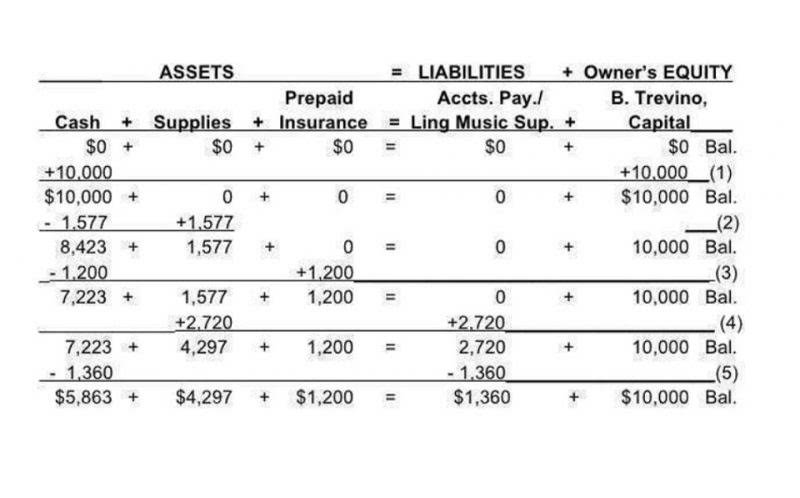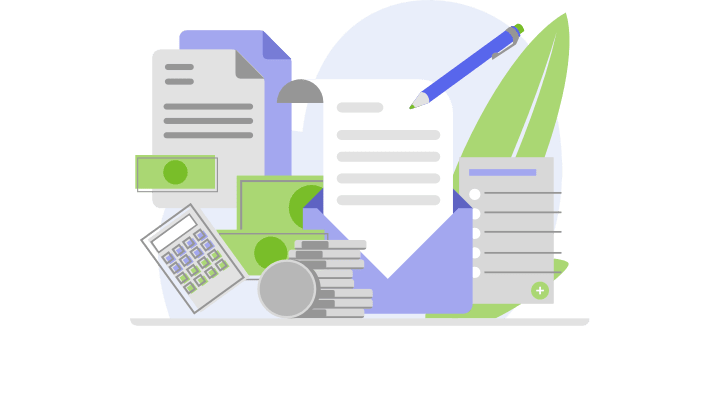
Her mortgage expertise was honed post-2008 crisis as she implemented the significant changes resulting from Dodd-Frank required regulations. Balancing a checking account—aka balancing a checkbook—probably isn’t on your list of fun activities. But keeping up with your spending and income is a must, and that’s exactly what balancing a checkbook does! Try your best to note every time you make a payment, even if it’s for a small amount. Once you’re used to the recording process, pay attention to how you’re spending your money.
- This process involves keeping track of your transactions, comparing them with your bank statements, and making sure everything lines up.
- We’re dedicated to helping you achieve financial freedom and make informed financial decisions.
- This increased choice will incentivize financial institutions to offer improved products that help them attract new customers and retain old customers.
- And continuing to come up with fresh, engaging topics is challenging, to say the least.
- Using a spreadsheet or ledger can also help you stay on top of your checking account balance.
- The more frequently you balance your checkbook, the more you’ll feel on top of your account.
- Our goal is to help every Canadian achieve financial freedom and make all levels of investors smarter, happier, and richer.
Mortgage basics: How much house can you afford?
- Choose from business checking, business credit cards, merchant services or visit our business resource center.
- This will mean you can access it from your phone, allowing you to make note of your transactions while you’re out and about.
- Regularly balancing your checking account is a cornerstone of sound money management.
- Look for any discrepancies, such as transactions you don’t recognize, differences in amounts, or missed entries.
- Depending on the service or vendor that charged your account, there may be a delay in their banking system connecting with yours.
- While we strive to provide a wide range of offers, Bankrate does not include information about every financial or credit product or service.
In our digital age, technology plays a significant role in simplifying the process of balancing checking accounts. Online and mobile banking apps provide a real-time view of your account, enabling you to check your current balance, deposit checks, and monitor transactions from anywhere, at any time. This gives you the flexibility to manage your financial tasks on the go, reducing the time and effort required for this task.

How To Balance Your Account In The Electronic Banking Era

Balancing a checking account begins with tracking your account activity. Whether you use paper CARES Act or technology, you’ll need a record of your activity. This record is sometimes referred to as a register, and you’ll compare it against the bank’s records of your account activity.
Multiple accounts can make it easier to follow a monthly budget
You use it to record every incoming and outgoing transaction in your account. This method originated from a time when writing checks was the primary way of making payments out of your checking account. Keeping track of all your account activity and maintaining a running balance gives a good idea of how much money is in your account at any given time. Aim to do this at least once a month when your bank statement arrives. For those who frequently use their debit cards, write checks, or have a lot of automated payments, weekly check-ins might be beneficial to ensure all transactions are recorded correctly.
How to save money in college: easy ways to spend less
- Any time you write a check, make a payment using your debit card, or initiate any other kind of debit or withdrawal, always record the transactions in your spending tracker or checkbook ledger.
- Her focus is on helping readers feel less alone as they navigate their personal finances and offering actionable insights.
- Your account balance will be listed on your statement, along with all transactions made during the statement period.
- In contrast to the permanent account, the balance on a temporary account does not continue into the next accounting period.
- Balancing your checkbook is one of those crucial life skills that you need to know.
- Both have merits, and it will really depend on where you’re at in your financial journey.
If you find yourself bouncing checks, however, how to balance an account you should balance your account anytime you’re about to spend money—for example, before paying bills or going shopping. – Today, the Consumer Financial Protection Bureau (CFPB) finalized a rule that will give consumers greater rights, privacy, and security over their personal financial data. Consumers will be able to more easily switch to providers with superior rates and services. By fueling competition and consumer choice, the rule will help lower prices on loans and improve customer service across payments, credit, and banking markets. Missing a payment or overdrawing your account can have costly financial — sometimes legal — consequences. You’ll not only owe the person or business you intended to pay, but you could also rack up hefty fees, hurt your credit score and banking history, or even be sued.
Bankrate logo

Aim to balance your account at least once a month, or more frequently if you have a lot of transactions. Regular reviews will help you catch any errors or unauthorized transactions early, keeping your finances in check. Once you have your bank statements, record all your transactions in a checkbook register or a digital tool like Excel, Google Sheets, or a dedicated app such as YNAB. Since your bank releases account statements once a month, you should balance your checkbook at least that often to keep up with the bank. However, it’s usually a good idea to balance your account more often to avoid overdrawing.

The more you understand the process, the more comfortable you may feel about managing your money. Balancing a checkbook can be just the thing you need to propel you into a better financial future. Keeping careful records may inspire you to start saving a little more, investing and building a nice financial safety net.
